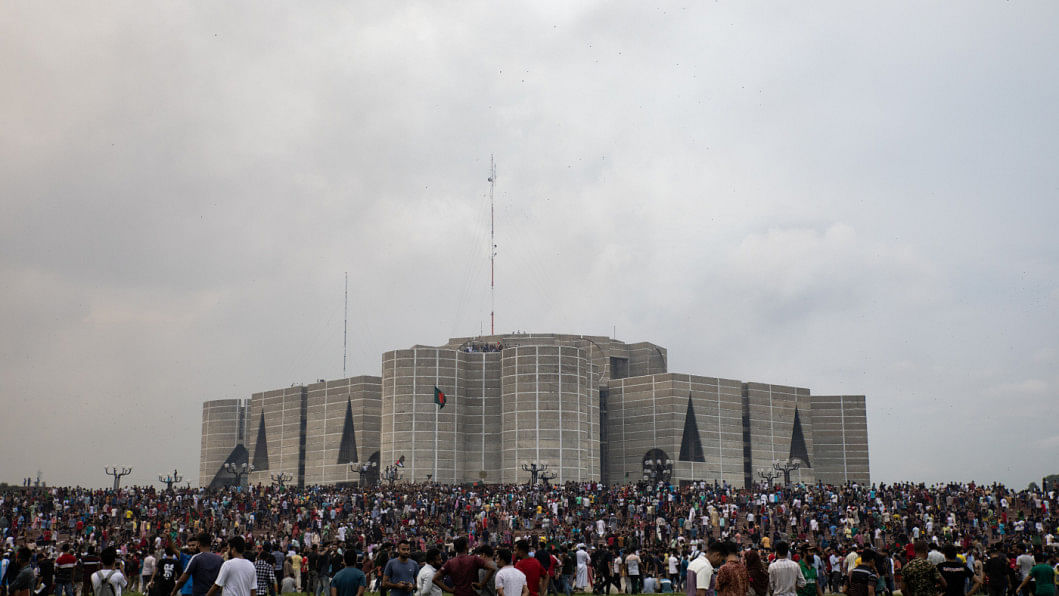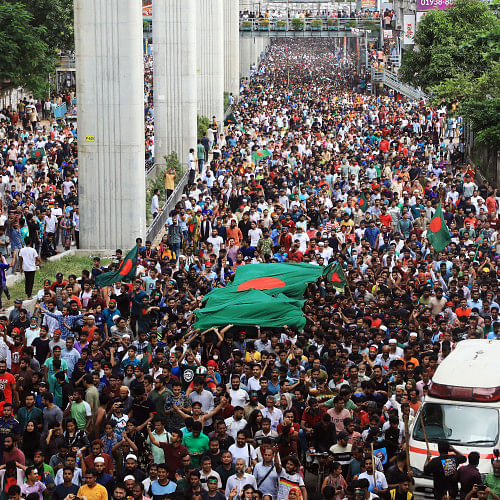In recent times, the liberated and much-buoyed Bangladesh Nationalist Party (BNP) has filled the air with demands for an election as early as December 2025. According to the decision of the Interim Government (IG), the election was originally scheduled for April 2026. However, a recent meeting held in London between Prof. Yunus, the Chief Adviser to the Interim Government, and Tarek Rahman, the Acting Chairman of the BNP, has resulted in a proposed date of February 2026.
Other major political parties, such as Jamaat-e-Islami, are more flexible—they prefer an election a little later, in June 2026.
However, buried beneath these debates on election dates and the tenure of the IG lies the key issue: the circumstances that led to the formation of the Yunus-led Interim Government and the expectations that came with it.
To appreciate the "expectations" regarding the IG, it is helpful to explore the backdrop against which, and the processes through which, governments are formed—and the expectations those processes generate.
Processes of Government Formation and Expectations
Broadly speaking, governments are formed in two ways—constitutional and circumstantial.
We all know that constitutional governments, formed through regular electoral processes, are expected to implement pre-election pledges.
By contrast, circumstantial governments, born of unique events such as revolutions or uprisings, are not tied to predetermined pledges. Instead, such governments are installed to fulfil the aspirations of those who steer the change and install them.
The Interim Government: A 'Circumstantial' Government and Its Aspirations
The Yunus-led Interim Government is a circumstantial government—a product of an uprising. It does not have a predetermined mandate to implement. Rather, the aspirations of those who led the uprising shaped a vision to prepare Bangladesh for a journey from autocracy to democracy, and from kleptocracy to a corruption-free, "better Bangladesh."
More specifically, the uprising's aspirations include, but are not limited to:
(i) the reinvention of democratic norms, values, and practices;
(ii) a corruption-free society;
(iii) restoration of the full spectrum of human rights, including freedom of speech;
(iv) equitable distribution of resources;
(v) resurrection of degraded moral values;
(vi) a rule-based society; and
(vii) most importantly, fair trials and convictions of those who committed crimes against humanity.
The IG has since commissioned and produced several reform reports. If implemented properly, these reports/proposals have the potential to strengthen democratic practices—ensuring free and fair elections, greater gender-inclusive participation in the legislature and governance, improved transparency and accountability, and reduced corruption in the public sector.
In this regard, it is important to remember that reform proposals are part of the process—not the end goal. It is the IG's responsibility either to implement all the agreed reforms or at least those with the potential to trigger broader transformation.
As for fulfilling the uprising's aspirations, the good news is that the IG has already initiated trials of leaders of the deposed government, including former Prime Minister Sheikh Hasina, on charges of crimes against humanity and corruption. However, its progress in creating conditions that would help Bangladesh transition to a moral, abuse-free, and corruption-free state remains unclear and largely out of sight.

Correction Before Election: Reform to Keep the Crooks Out
Whether the election is held in February or June 2026, it is imperative that the IG is preparing for it. It is also legitimate to expect that the IG will ensure a free, fair, and competitive election.
But would a free and fair election alone guarantee a transition to a corruption-free society—especially if political parties and politicians, who are the future custodians of governance, are not composed of individuals of integrity and merit? Certainly not.
A recent UN study on corruption revealed that even the best systems fail to uphold good governance norms if they are not run by people of merit and integrity. The study further confirmed that regardless of how good a system is, if crooks enter and operate it, the system will become crooked.
In other words, reforms aimed at ensuring free and fair elections—and ultimately democracy and good governance—must also include, and indeed be preceded by, measures that prevent crooks from entering the political system.

Such measures include, but are not limited to:
(i) mandatory disclosure of the financial and material assets of political parties, including sources of funding, annual budgets, transactions, and yearly independent audits—with findings shared publicly; and
(ii) ensuring that only individuals of integrity make up the leadership of political parties, and by extension, future leaders in government and opposition. This would require the introduction of provisions whereby all office bearers must undergo rigorous integrity checks—financial and otherwise—prior to appointment.
The reforms listed above are key to maintaining the integrity of political parties and their leadership. They are sine qua non for ensuring good governance norms and practices in the future—an essential aspiration of the July–August 2024 uprising. These must be in place before the general elections, whether in February 2026 or later.
Professor M. Adil Khan is an Adjunct Professor at the School of Social Science, University of Queensland, Australia, and a former senior policy manager of the United Nations.




Comments